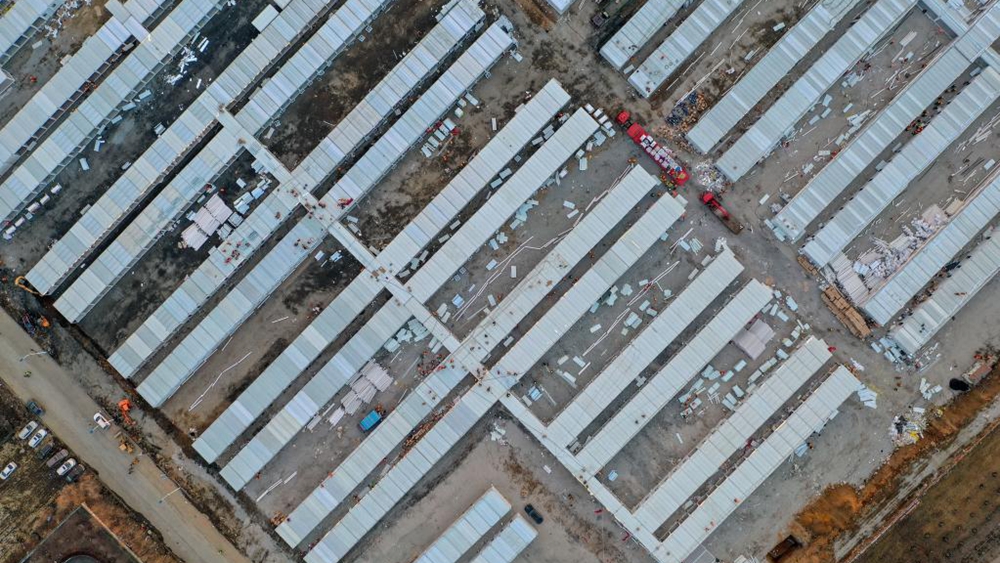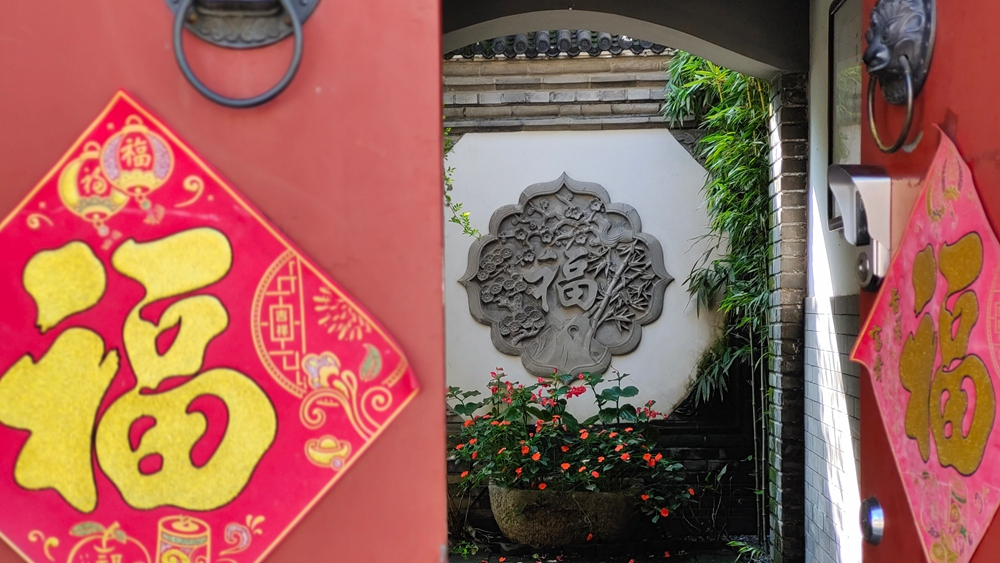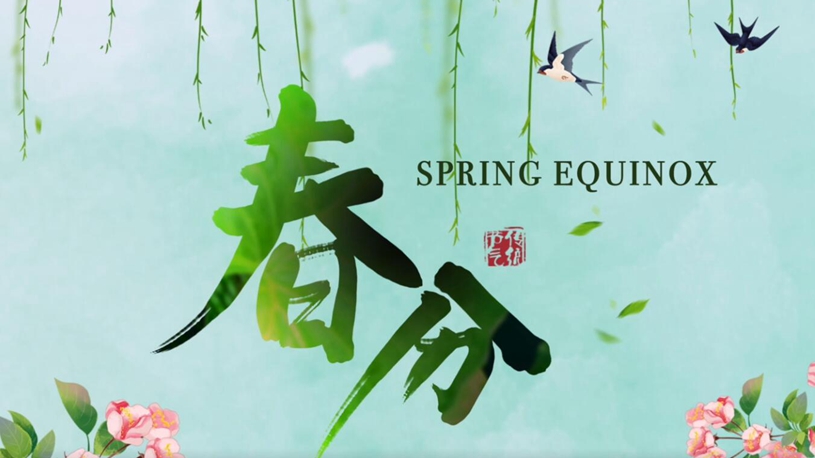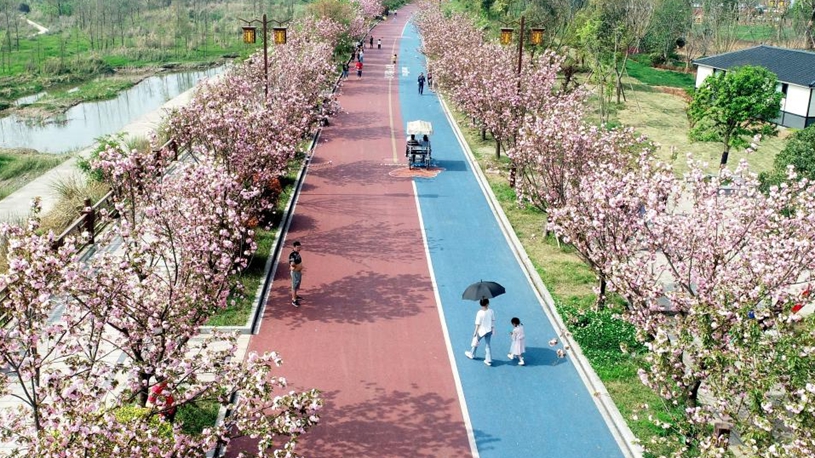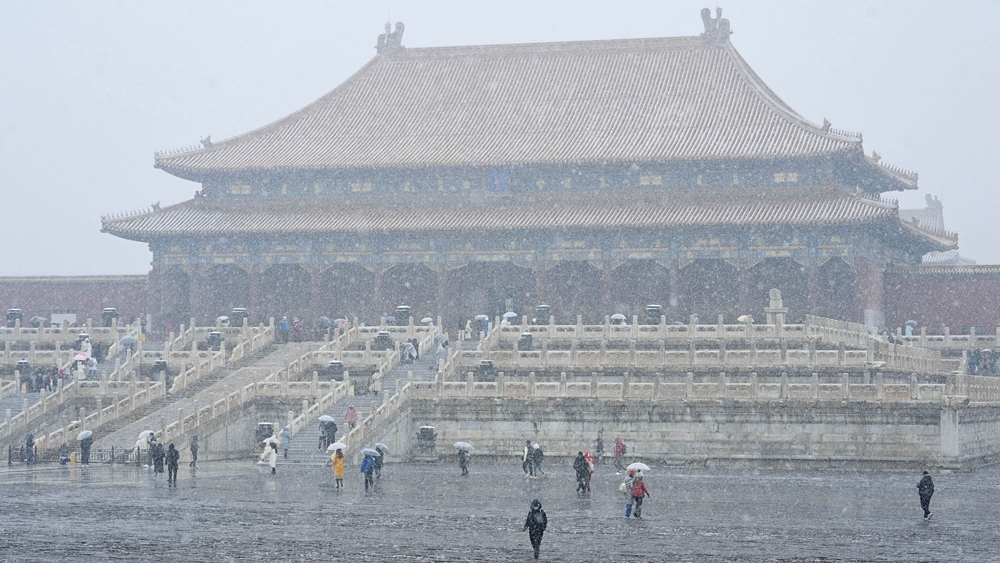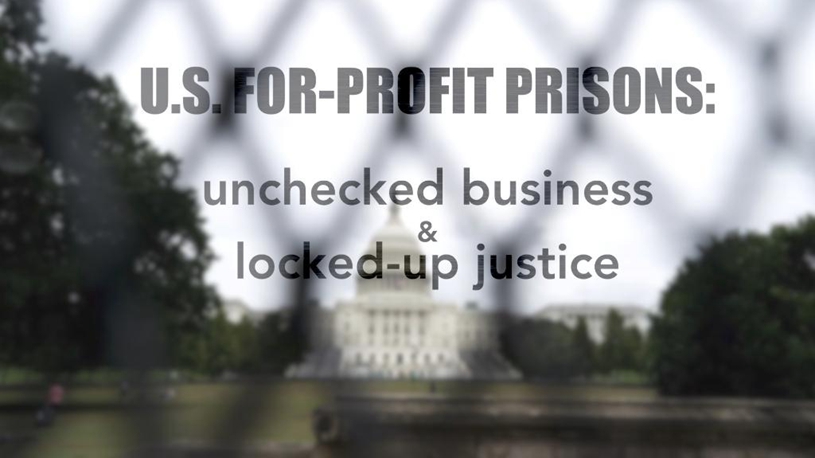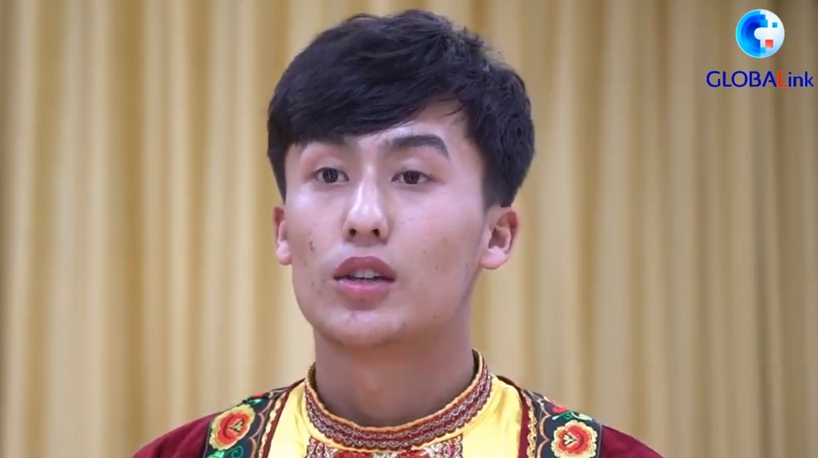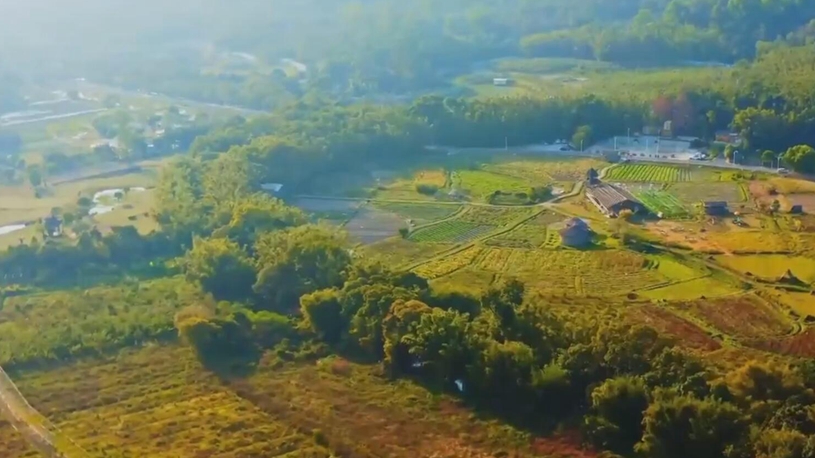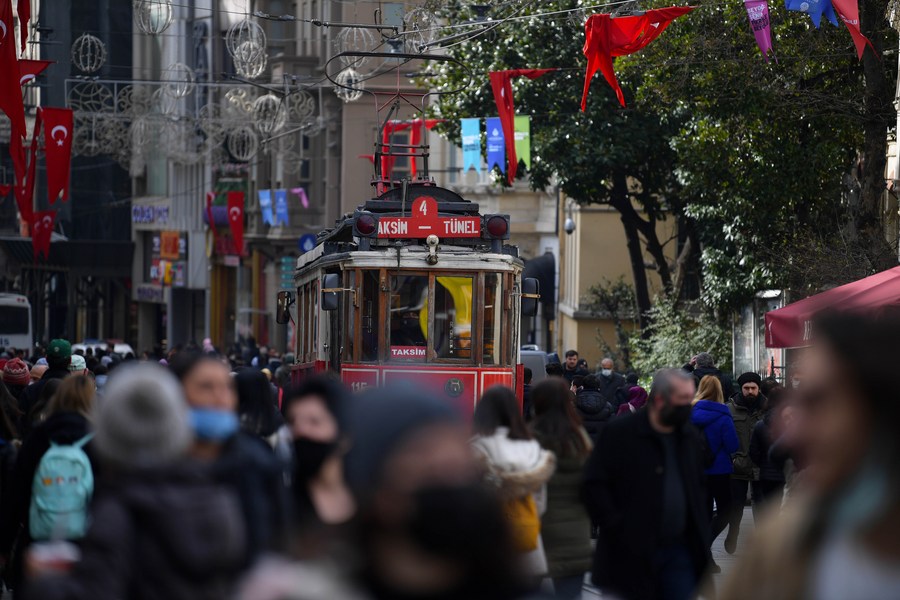
A tram runs on Taksim Square in Istanbul, Turkey, Feb. 1, 2022. (Xinhua/Shadati)
The ongoing Russia-Ukraine conflict will cast a shadow on the revival of Turkey's tourism, a key pillar of the country's economy.
by Burak Akinci
ANKARA, March 21 (Xinhua) -- Turkey had hoped for a tourism revival in 2022 as the COVID-19 pandemic ebbs. However, the Russia-Ukraine conflict will have a notable toll on the sector, making the revival with even less hope than before.
"Last year, around 28 percent of foreign visitors to Turkey came from Russia and Ukraine. The ongoing conflict will have a real impact on our tourism industry this year," said Firuz Baglikaya, head of the Association of Turkish Travel Agencies (TURSAB).
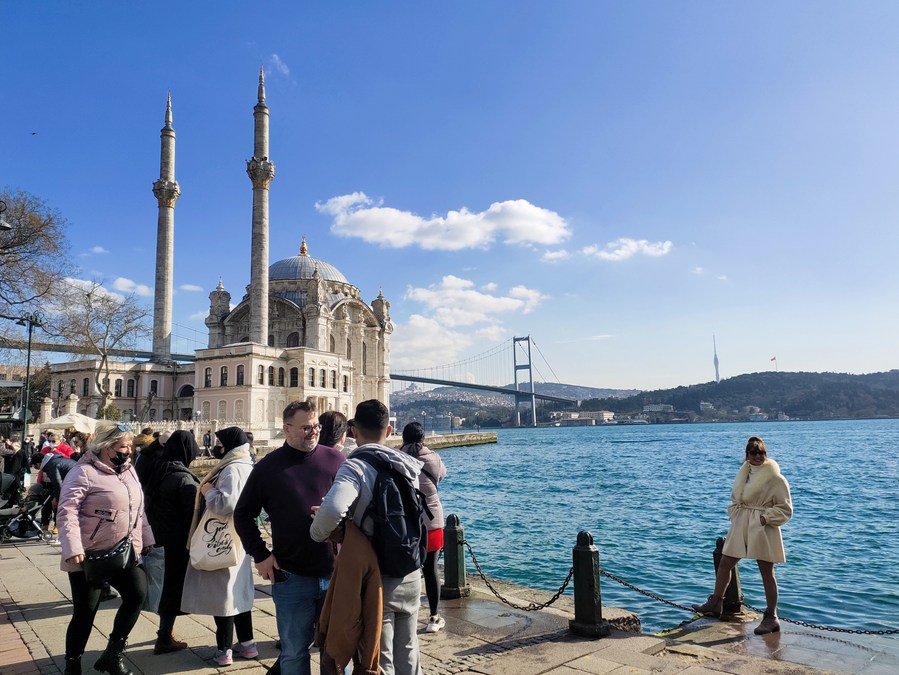
Tourists visit the Bosporus Strait in Istanbul, Turkey, on Jan. 31, 2022. (Xinhua/Shadati)
Turkey welcomed 4.7 million Russian and 2 million Ukrainian holidaymakers in 2021, Baglikaya said, adding that the number of tourists would be considerably lower as there were significant reservation cancellations from both countries.
"Even if the conflict ends, our tourism will be affected," Baglikaya said.
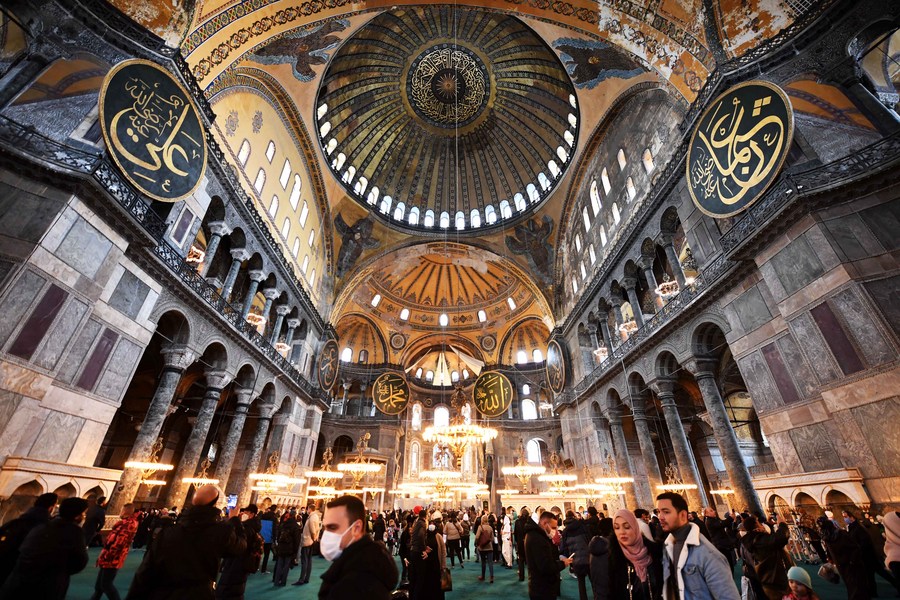
People visit Hagia Sophia in Istanbul, Turkey, Dec. 18, 2021. (Xinhua/Shadati)
He added that Turkey will try to compensate for the loss by attracting visitors from the Balkans and the Middle East.
"We don't expect any tourists from Ukraine this year and the number of Russians is projected to be around 1.5 million," Nusret Canatar, general manager of two five-star hotels located in Side and Alanya, told Xinhua.
"We expect a very serious loss of revenues, some 30 percent of all tourism receipts for 2022," Canatar warned.
For Turkey's southern resorts, the high season for Russian tourists normally starts in early May.
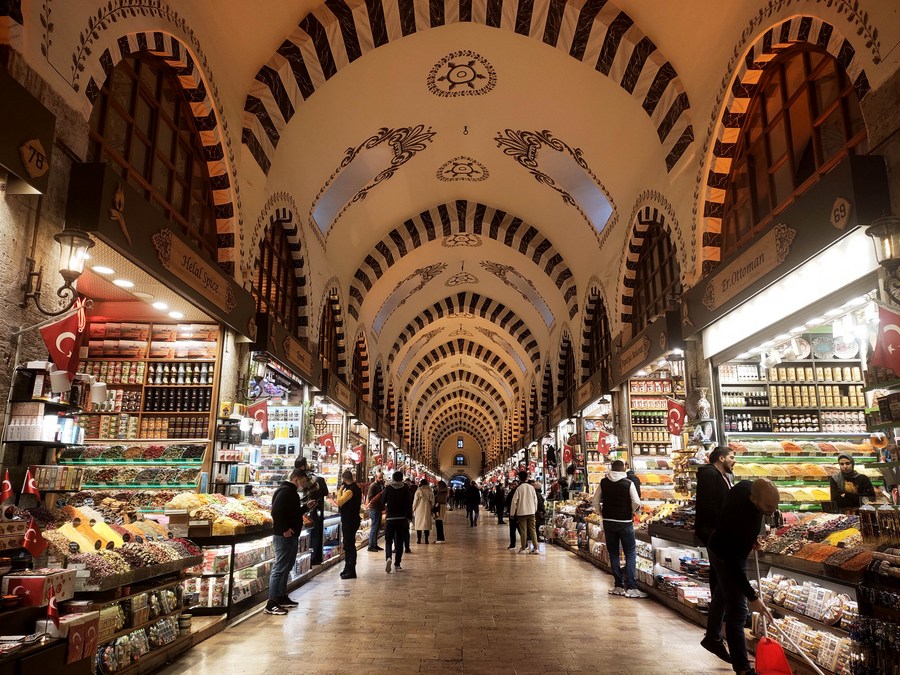
Tourists shop at a bazaar in Istanbul, Turkey, Dec. 18, 2021. (Xinhua/Shadati)
But even if the conflict ends soon, western sanctions imposed on Russia would have decimated the purchasing power of most Russian households, who may later cancel their overseas holidays, Canatar said.
After airlines such as Airbus and Boeing joined Western financial sanctions against Russia, whose major banks were also excluded from the SWIFT system, the status and frequency of flights from Russia to Turkey should also be concerned, he said.
The tourism industry is a key pillar of Turkey's economy, as it constitutes 10 percent of the country's gross domestic product (GDP).
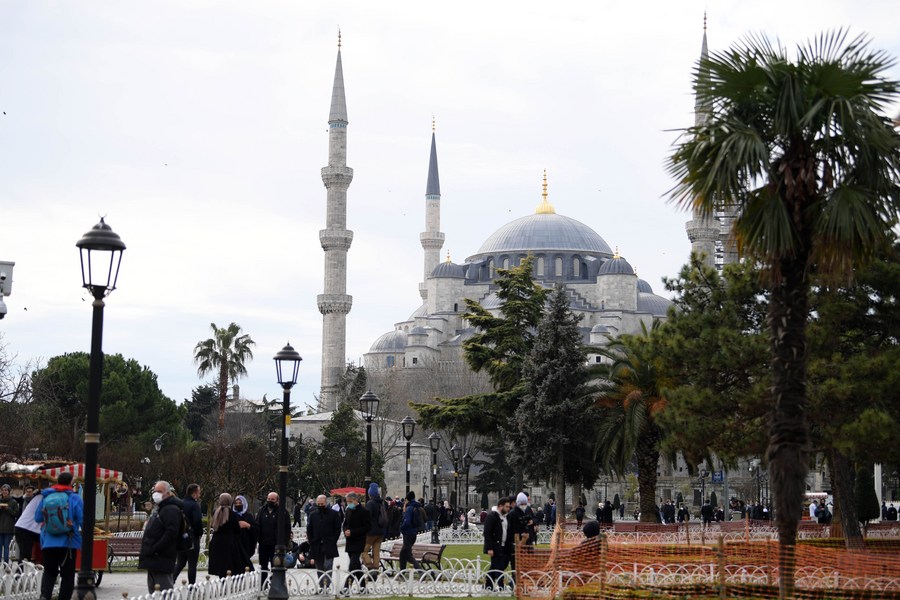
Tourists visit the Sultanahmet Square in Istanbul, Turkey, Feb. 1, 2022. (Xinhua/Shadati)
Contrary to the sharp decline in Russian and Ukrainian tourists, Israeli travelers might return to Turkish resorts due to the recent thaw in ties between Turkey and Israel.
"Twenty years ago, tens of thousands of Israeli tourists used to travel to Turkey for holidays. Now, as the two countries are mending ties, we expect tourists' return to our Mediterranean and Aegean coasts," Esra Kilic, an official from an Ankara-based tour agency, told Xinhua.
On March 9, Israeli President Isaac Herzog flew for a meeting with Turkish President Recep Tayyip Erdogan in the capital Ankara, the first high-level meeting between the two countries in years.■

